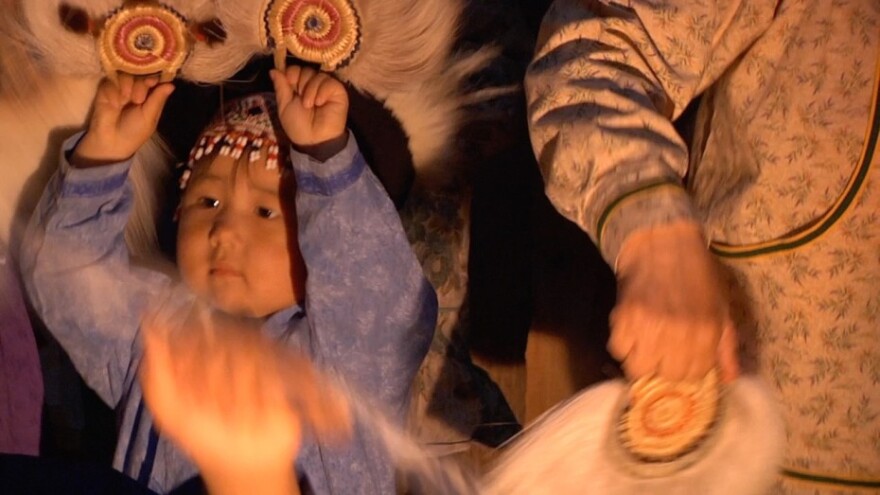Juneau filmmaker Lisle Hebert is making a film based on Harold Napoleon’s essay “Yuuyaraq: The Way of the Human Being.” Napoleon gave Hebert his blessing to do the adaptation, but he says it’ll be a challenge to translate the message to film.
The beginning of Lisle Hebert’s film “Yuuyaraq” is a re-enactment depicting life on the Yukon-Kuskokwim Delta before Western contact. The narration stays true to Harold Napoleon’s original words.
“It’s verbatim because his writing is so poetic, and so I couldn’t do better than that,” Hebert said.
The re-enactment conveys what the Yup’ik word Yuuyaraq means.
“Their spiritual beliefs, the way they viewed the world, everything had a spirit. Everything was in harmony and it was kind of like a code of living,” Hebert said.
Napoleon wrote Yuuyaraq in 1988 when he was in prison for the death of his son. He says he was so drunk, he blacked out and doesn’t remember it. Without any memory of what happened, he couldn’t defend himself and so he pled no contest to second degree murder. He never went to trial and no matter how it happened, he blames himself.
He started writing to figure out why he and so many people he knew struggled with alcohol abuse.
Napoleon is Yup’ik Eskimo from Hooper Bay.
“I had been baffled for many years about why we knew so very little about our own history and why there was so much shame about our own culture,” Napoleon said.
Napoleon is 66. He said he grew up in a very confusing world, being neither fully Yup’ik nor white and Christian. There was suffering in the missing pieces of his village’s history.
“There was also a lot of disconnect between parents and children and that disconnect was not just personal, it was also cultural,” Napoleon said.
“As children, we were not abandoned literally, but we somehow ended up in nowhere land.”
Napoleon experienced abuse as a child and drank as an adult. While in prison, he read a lot about trauma and post-traumatic stress disorder in Vietnam War veterans.
“Having never been to war and never experienced war or witnessed war, I found it odd that I would have the same symptoms as Vietnam veterans. And not only me but all the other people in my village had the same symptoms,” Napoleon said.
After more research, Napoleon learned about the flu epidemic of 1918. In Yuuyaraq, he calls it the “Great Death” and wrote that it spread like wildfire, killing 6 of every 10 people and wiping out Alaskan villages. “It gave birth to a generation of orphans,” he wrote.
Up until then, Napoleon said Yup’ik people had resisted Christianity and white influence.
“But after ‘The Great Death,’ there was mass conversion and people began to abandon, in a sense, their own culture and in abandoning their culture, they abandoned themselves. There was also born in them a sense of shame and guilt because what they were being taught is that the way they had lived their lives had caused them to die in such great numbers,” Napoleon said.
He said the trauma, shame and violence he and others in his village experienced traces back to that time. And it still reverberates today.
Writing Yuuyaraq, Napoleon said, helped him to understand his village and his family, the past and the present.
“With understanding there came forgiveness. I had found a trail of truth through our experiences as Native people,” he said.
Napoleon said Alaska Native cultures are going through a reawakening and he hopes Lisle Hebert’s film adaptation of Yuuyaraq will contribute to it.
“If the young people become interested in their own stories, in their own history, then I think it will have done a good job,” Napoleon said.
As a young man, Hebert said he spent time in Hollywood and used to be egotistical about filmmaking, but Yuuyaraq is about something else.
“I’m hoping that people will be moved by it and have more compassion and also realize what (Alaska Natives) have been through, and try to look at people like people,” Hebert said.
For Hebert, Yuuyaraq is a meaningful film, and that has given meaning to his own life.
Lisle Hebert plans to finish the film in June. An Indiegogo campaign is currently underway to help him do that.




